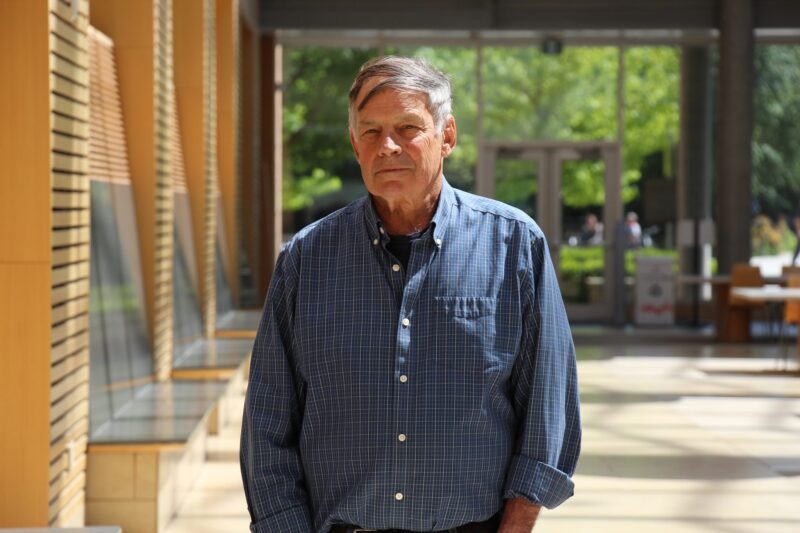Sep 9, 2024
Where are they Now? Dr. Bob Molday: Helping to Build a Strong Foundation for Research

You need a strong foundation before you can build a great structure, and this is what early funding from Fighting Blindness Canada (FBC) enabled Dr. Robert (Bob) Molday to do. Recognizing the importance of strong foundations is also what prompted him to get further involved with FBC.
One of the early grants Dr. Molday, a Professor of Biochemistry and Molecular Biology at the Faculty of Medicine at the University of British Columbia, received from FBC (then the Retinitis Pigmentosa (RP) Foundation) involved the identification and characterization of the photoreceptor membrane protein, peripherin-2.
Absence of peripherin-2 in mice results in the inability of photoreceptors to form outer segments where vision is initiated. Loss of outer segments leads to retinal degeneration and a loss in vision.
“Our FBC-funded studies laid the foundation for the screening of patients for mutations in the human peripherin-2 gene by geneticists around the world,” he says. Such mutations were found to cause autosomal dominant RP and macular dystrophy.
“In terms of my research career it engaged our lab into unraveling mechanisms underlying many retinal diseases and initiating studies into the application of gene-therapy as a treatment for some retinal degenerative diseases.”
Since then, Dr. Molday has become a distinguished researcher who has, among other things, investigated mechanisms underlying Stargardt disease and Leber congenital amaurosis (LCA) — also thanks to FBC funding. This project also involved developing AAV-gene therapy for mouse models for LCA-12 and Stargardt disease as potential treatments for the human diseases in collaboration with Dr. Bill Hauswirth’s lab at the University of Florida.
His current research involves utilizing lipid nanoparticles in combination with DNA base editing and prime editing. This strategy is trying to overcome some of the challenges associated with delivery of current gene replacement therapies.
Along the way, Dr. Molday also became involved with FBC.
“Fighting Blindness Canada is the primary charity in Canada supporting research in vision and eye diseases and, in particular, retinal diseases,” he says. “FBC is also important in supporting graduate students and postdoctoral trainees in vision research,” he says.
He wanted to ensure the most innovative and significant research was funded by FBC, which motivated him to serve as a Scientific Advisory Board chair and board member, as well as to become a grant reviewer.
“FBC has been important in supporting basic and clinical investigators seeking to better understand the genetic and molecular basis for retinal diseases and developing and applying novel therapeutic strategies to limit the loss in vision due to retinal diseases,” he says.
Building on findings from these projects and others, Dr. Molday is excited for the possibilities of the future. “Moving forward, we believe that there are potentially new and improved gene-therapy treatments for various blinding diseases.”
Join the Fight!
Learn how your support is helping to bring a future without blindness into focus! Be the first to learn about the latest breakthroughs in vision research and events in your community by subscribing to our e-newsletter that lands in inboxes the beginning of each month.

